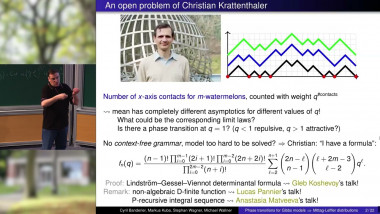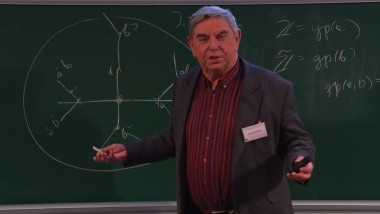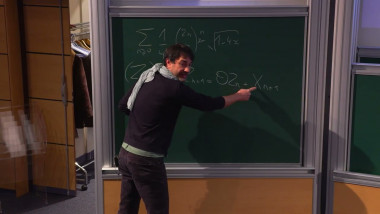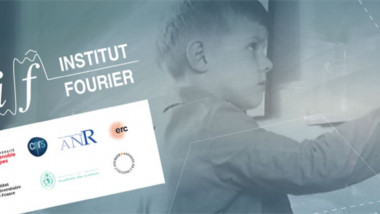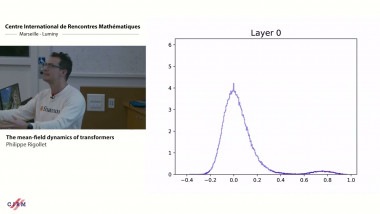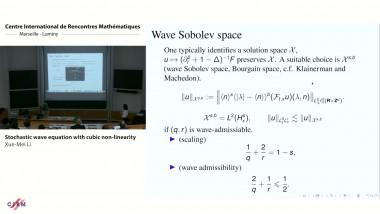Appears in collection : Thematic Month Week 2: Mathematical Models in Evolutionary Biology / Mois thématique Semaine 2 : Modèles mathématiques en biologie de l'évolution
In the infinitesimal model, one or several quantitative traits are described as the sum of a genetic and a non-genetic component, the first being distributed within families as a normal random variable centred at the average of the parental genetic components, and with a variance independent of the parental traits. The idea behind the normal distribution of the genetic component is that the genetic part of the trait of interest is the sum of the ‘infinitesimal' contributions of the allelic states at a very large number of loci. This model has been widely used in quantitative genetics, but less so in evolutionary biology and the precise conditionsunder which it holds has remained rather vague. In this talk, we shall provide a mathematical justification of the model as the limit as the number M of loci tends to infinity of a model with Mendelian inheritance, which includes different evolutionary processes (genetic drift, recombination, selection, mutation, population structure, ...). Generalisations of the simple version of the infinitesimal model presented here, as well as some applications, will be presented in the following talks by Nick Barton and Alison Etheridge.
